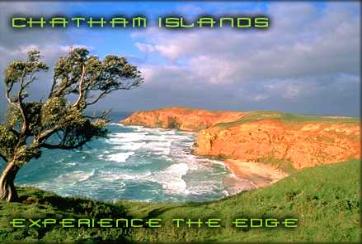For bees on Chatham Island distance has been, in one respect, an advantage (Tyranny of Distance, October 27). It has kept at bay the Varroa mite which is their greatest threat on the mainland. But until the efforts four years ago of two energetic and devoted beekeepers, bees were a neglected and insignificant part of the island’s ecosystem. Michele Andersen and Mana Cracknell have established an apiary of about 100 hives at Kaingaroa, a tiny settlement in the island’s northern corner. Honey is a side production, their main objectives being pasture improvement from increased nitrogen as the bees pollinate clover, and the raising of queens. Improved pasture will make beef production viable. At the moment cattle roam over unfenced peat land in search of grass and are often shot by hunters for sport. Michele and Mana see the raising of queens as providing a Noah’s ark for the future.
On the mainland Varroa is showing resistance to treatment and has eliminated feral colonies in the North Island and much of the South. The survival of bees is now dependent on the availability of healthy queens in managed hives. It takes special talent and persistence to raise bees on this bleak island where sunshine hours are about half those on the mainland and January’s average temperature is 14 degrees. Hives need to be in sheltered spots. Pollen-rich plants include gorse, wild canola, dandelion, buttercup, flax and the turpentine plant called tarahinau - but no manuka. Then there’s the difficulty of getting queens mated, which needs no wind and a warm day. Astronomical transport costs mean that Mana and Michele construct their own equipment. But they can’t make equipment for the next stage in developing their ark. To avoid inbreeding and the mating problem they need to artificially inseminate imported queens with semen from their own drones. It’s a tricky procedure requiring special needles and magnification and a steady hand. A little help from the mainland could go a long way.
Source:
Pat Baskett
(Okura, Auckland)
9 Vaughans Rd, RD 2, Albany, 09 4737846

- Log in to post comments
